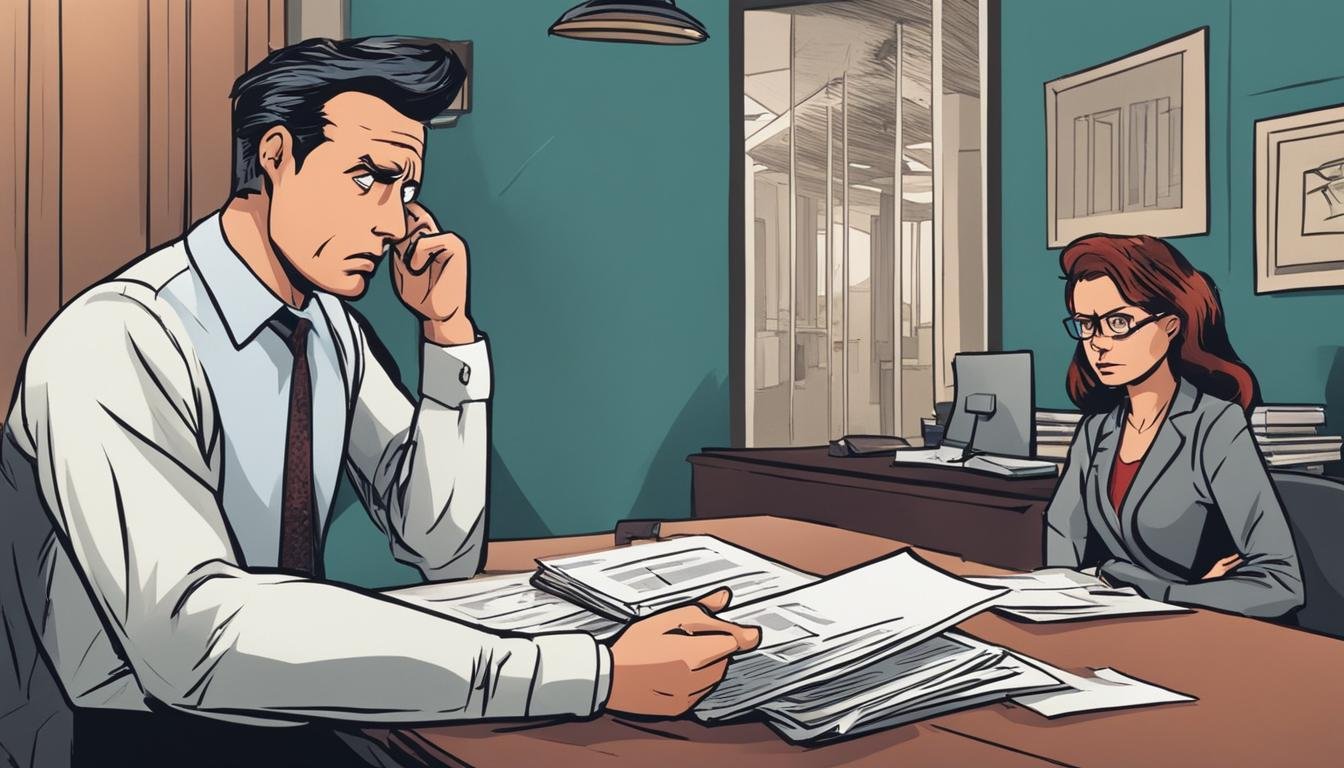After filing an insurance claim, you have the option to accept or reject the settlement offer provided by the insurance company. While many choose to accept the initial offer, there are instances where rejecting it may be the more appropriate course of action. But what happens when you decide to reject an insurance settlement offer?
When you reject an offer, the negotiation process continues. The insurance company may be willing to engage in further discussions, presenting counteroffers along the way. This gives you the opportunity to advocate for a settlement that better aligns with your damages and needs. However, rejecting an offer also comes with risks and potential delays.
Before making a decision, it’s important to carefully consider your options. Understand the consequences of rejecting an insurance settlement offer and assess the validity of your reasons for doing so. By doing your due diligence, you can make an informed choice that maximizes your chances of achieving a fair and just resolution.
Key Takeaways:
- Rejecting an insurance settlement offer does not mean the end of negotiations.
- The insurance company may present counteroffers to continue the negotiation process.
- Rejecting an offer comes with risks and potential delays.
- Carefully consider your options and assess the validity of your reasons for rejecting the offer.
- Working with an experienced insurance attorney can greatly improve your chances of achieving a favorable outcome.
Common Reasons to Reject a Settlement Offer
When presented with a settlement offer from an insurance company, there are several valid reasons why individuals may choose to reject it. These reasons include:
- Insufficient Amount: The offered settlement may not fully cover the damages incurred, leaving the claimant with additional expenses and financial burden.
- Disagreement on Liability: There may be a disagreement regarding who is at fault or the extent of liability for the incident, which can lead to a rejection of the settlement offer.
- Potential Future Expenses: Concerns about potential future expenses related to the claim, such as ongoing medical treatment or property repairs, can prompt individuals to reject an offer that does not adequately account for these costs.
- Uncertainty of Losses: If the full extent of losses is unclear or not yet determined, individuals may choose to reject the settlement offer until a more accurate assessment can be made.
- Value of the Claim: If the claimant believes that the value of their claim is greater than the offered settlement, they may reject the initial offer in pursuit of a higher compensation.
By exercising their right to reject a settlement offer, individuals assert the validity of their claim and seek a fair and just resolution that adequately addresses their damages and needs.

Table: Comparison of Common Reasons to Reject a Settlement Offer
| Reasons | Implications |
|---|---|
| Insufficient Amount | Claimant may face financial burden and additional expenses. |
| Disagreement on Liability | Potential deadlock in negotiations and need for further evidence. |
| Potential Future Expenses | Inadequate coverage for ongoing medical treatment or property repairs. |
| Uncertainty of Losses | Need for accurate assessment of losses before accepting any offer. |
| Value of the Claim | Belief that the claim is worth more than the offered settlement. |
Rejecting a settlement offer is a strategic decision that allows individuals to advocate for their rights and pursue a resolution that aligns with their best interests. However, it is important to consider the potential consequences and risks associated with rejecting an offer. Seeking legal advice on insurance settlement negotiation tactics can provide valuable guidance and increase the likelihood of achieving a favorable outcome.
Why Is It Important to Work with an Experienced Insurance Attorney?
When faced with the decision to accept or reject an insurance settlement offer, it is crucial to have the assistance of an experienced insurance attorney. The complexities of insurance law and policies can be overwhelming, making it difficult to navigate the negotiation process alone.
An attorney specializing in insurance settlement negotiation tactics can provide invaluable expertise. They have a deep understanding of the nuances involved and can guide you through the process, ensuring your rights are protected and your best interests are represented.
One of the key advantages of working with an attorney is their ability to dispute an insurance settlement offer effectively. They can evaluate the offer’s fairness, comparing it to the true value of your claim. If the offer falls short of what you deserve, an attorney can skillfully negotiate with the insurance company to seek a higher and more appropriate settlement.
Additionally, seeking legal advice on insurance settlement matters can help you avoid common pitfalls. An attorney can assess the full extent of your losses, including any potential future expenses related to the claim. They can also gather necessary documentation and evidence to support your case, strengthening your position during negotiations or in court if a lawsuit becomes necessary.
FAQ
What happens when you reject an insurance settlement offer?
When you reject an insurance settlement offer, several scenarios can unfold. The insurance company may be willing to continue negotiations, offering counteroffers in the process. If negotiations do not progress, you can request a new insurance adjuster or even file a lawsuit against the insurer.
What are some common reasons to reject a settlement offer?
Some common reasons to reject a settlement offer include an insufficient amount that does not fully cover the damages, a disagreement on liability or fault for the incident, concerns about potential future expenses related to the claim, uncertainty about the full extent of losses, and a belief that the value of the claim is greater than the offered settlement.
Why is it important to work with an experienced insurance attorney?
Working with an experienced insurance attorney is important because they can provide in-depth knowledge of insurance law and policies, offer qualified legal guidance to help make informed decisions, and utilize negotiation skills to advocate for fair compensation. They can assess the true value of the claim, gather necessary documentation, protect legal rights, and provide representation in court if necessary.

